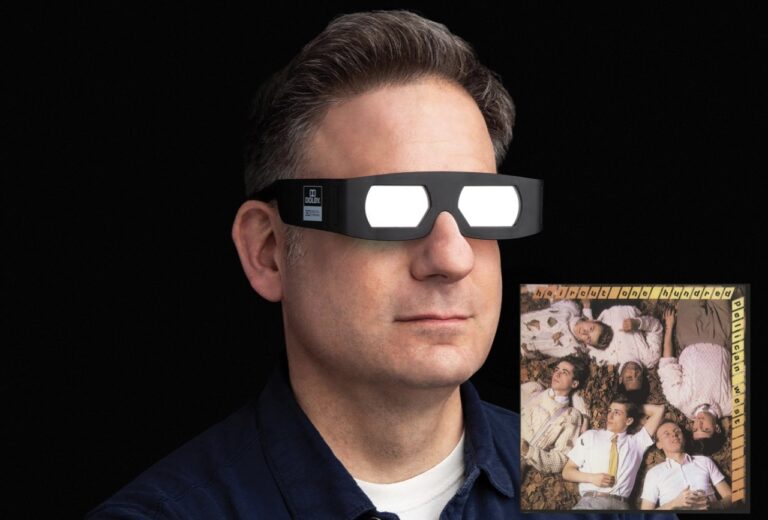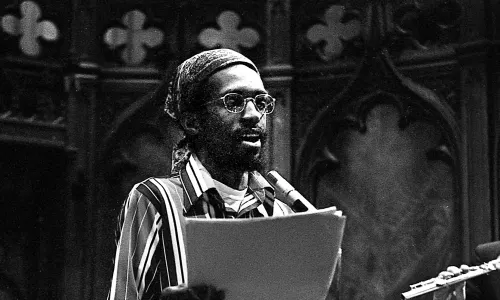“Dune” is a Stunning Adaptation of a Foundational Sci-Fi Text

This article contains spoilers for “Dune”.
For decades, “Dune” was considered unfilmable. Frank Herbert’s acclaimed 1965 novel of interstellar intrigue blends themes of imperialism, religion, destiny, morality, and more. It is the best-selling science fiction novel of all time. Yet its dense worldbuilding, interwoven politics, and often internally-focused narrative have proved difficult to translate to the silver screen.
But with his adaptation of the novel’s first half, now in theaters and streaming on HBO Max, director Denis Villeneuve has emerged triumphant, bringing to the screen a truly spectacular vision of Herbert’s world.
Villeneuve’s “Dune,” titled “Dune: Part One” onscreen, is the fourth attempt to bring Herbert’s seminal novel into live-action as it finally reaches theaters after a 10-month delay from its initial Christmas 2020 release date. In the mid-1970s, director Alejandro Jodorowsky failed to get an adaptation off the ground. A first film version of “Dune,” released in 1984, was critically maligned and disowned by its director, David Lynch. A 2000 television miniseries was better received, but its confinement to the small screen constituted a minimal cultural footprint. With the current adaptation boasting a star-studded cast, large budget, and Villeneuve’s experience in crafting large-scale, acclaimed science-fiction films such as “Arrival” and “Blade Runner 2049,” “Dune” aficionados hoped the 2021 film would become the definitive cinematic “Dune.” While only time will tell its legacy, “Dune” is an awe-inspiring cinematic marvel.
In its opening minutes, “Dune” shows viewers its titular setting: the desert planet Arrakis, also known as Dune. Filmed on location in Jordan and the United Arab Emirates, the deserts of Arrakis are beautifully imposing. Arrakis is the sole source of spice, a priceless substance that fuels interstellar travel. The planet’s native people, the Fremen, are brutally subjugated by House Harkonnen, a noble house who extract spice for their imperial masters. But for reasons unknown, the Harkonnens are called to retreat from Arrakis, and the emperor orders House Atreides to take their place as the planet’s stewards.
The film’s protagonist, the teenage Paul (Timothée Chalamet) is the heir to House Atreides. Like many a science-fiction hero before him, his coming of age coincides with, to borrow a phrase from Spider-Man, great power and great responsibility. But Paul is unsure of his role, fearful of the burden and consequences of the power at his fingertips. His father, the stoic but noble-hearted Duke Leto Atreides (Oscar Isaac), attempts to comfort his son, even as he struggles himself to take on the gift of Arrakis, which he fears may really be a trap laid by the emperor.
Paul’s mother, Jessica (Rebecca Ferguson), stands at the intersection of the story’s political and mystical realms. Jessica is a member of the Bene Gesserit sisterhood, an order of so-called witches working with the empire. Giving birth to Paul went directly against the order’s demands of Jessica to continue their all-female line, and in doing so, Jessica knows Paul stands poised to become the messiah that the Bene Gesserit long planned to manufacture to lead the Fremen. When House Atreides is betrayed after their arrival on Arrakis, Paul must decide if he can step into this role, even as he fears the bloodshed his ascension will inspire. Jessica stands torn between her love for Paul and her devotion to her sisterhood, between protecting her son’s innocence and guiding his growing power.
If these preceding paragraphs haven’t made it clear, “Dune” is a dense story to tell. It encompasses a large fictional universe, with an abundance of factions (House Atreides, House Harkonnen, the Fremen, the Bene Gesserit, etc.) each with their own intersecting aims. But it is a testament to the economy of the film’s screenplay, co-written by Villeneuve, Jon Spaihts, and Eric Roth, that the film is never bogged down by its world-building. Indeed, “Dune” fleshes out the world as it goes, allowing details to go uncovered rather than over-explained. While such a density of facts could, in the hands of lesser filmmakers, come off as cold, Villeneuve wisely centers the perspectives of Paul and Jessica, granting an emotional look at the human weight of galactic political machinations. Becoming immersed in the world of “Dune” comes with a sensation of exciting discovery, rather than being forced to memorize a list of facts.
Much of this richness is due to the film’s stellar cast, who all inhabit their roles perfectly. I’ve already praised the central Atreides family of Chalamet, Isaac, and Ferguson. Other standouts from the huge ensemble include Duncan Idaho (Jason Momoa), an affable and charismatic soldier, Dr. Liet Kynes (Sharon Duncan-Brewster), a magnetic presence as a Fremen scientist who guides House Atreides, and Baron Vladimir Harkonnen (Stellan Skarsgård), the menacing and ruthless head of House Harkonnen. The young Fremen Chani (Zendaya) is also an intriguing presence, though the actress’s fans may be disappointed to learn that her screen time is fairly brief, mostly setting up a larger role in “Dune: Part Two” which, following the strong opening of “Dune,” has been greenlit for an October 2023 release.
Beyond its rich lore, “Dune” is also a pure spectacle for the senses that deserves to be seen on the biggest screen possible. Villeneuve has always had a talent for rendering a sense of scale and awe, and cinematographer Greig Fraser’s compositions, from massive brutalist spaceships to the gothic gloom of the Atreides home on the planet Caladan to the sandy landscapes of Arrakis are often genuinely gasp-inducing. Though “Dune” is not quite action-packed, its action scenes, from one-on-one knife combat to breathless runs through the desert to evade the massive sandworms, are visceral and tense. Hans Zimmer’s score is invigorating and appropriately otherworldly, utilizing intense percussion and vocalizations to convey both the intense emotionality and epic scale of the film’s events. A particularly impressive piece of sound design is the bassy, layered rendering of “the voice,” a psychic power through which the Bene Gesserit can force others to do their bidding.
Admittedly, “Dune” has one unavoidable drawback: the anticlimactic ending. Given the sheer scope of the novel, Villeneuve wisely chose to split it across two films, but this necessitated that the first end midway through the story’s grand narrative. But, at least personally, the first part’s scale and craftsmanship left me more than satisfied, although I may be counting the days until “Dune: Part Two” releases in two years. Even with a hefty 155-minute runtime, “Dune” never drags for even a moment. It’s a relentless, entrancing, and viscerally exciting look into another world that, even after 55 years of inspiring other science fiction works, feels nothing but fresh.
Oscar Kim Bauman can be reached at obauman@wesleyan.edu.








Thank you, it was a pleasure to read and draw certain conclusions for myself.